SparkTalks Presenter Profiles | April 2024
Sara Beeler, PhD, LCSW, MPA
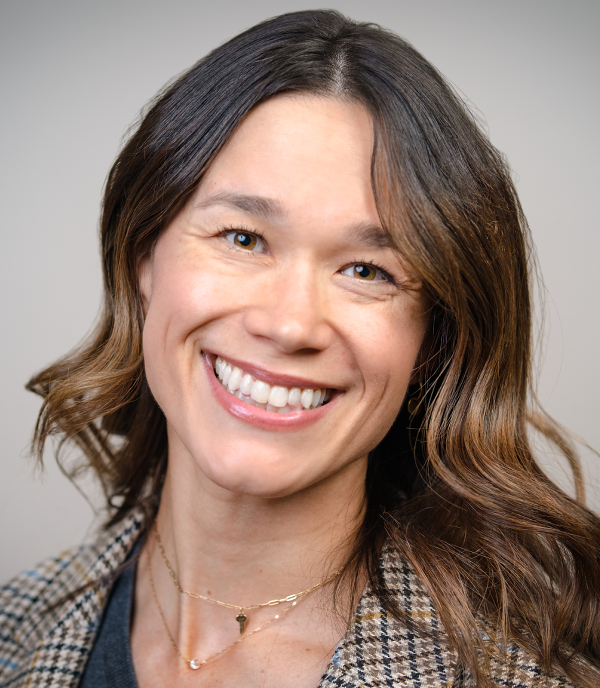
Assistant Professor, Social Work
Jane Addams College of Social Work
Bio: Sara Beeler is an addictions researcher focused on the intersection of substance use and criminal legal involvement. She looks at the facilitators of help-seeking behavior to understand the different paths to health and wellness among people who use drugs and alcohol. Beeler is an assistant professor at the Jane Addams College of Social Work and a faculty fellow at the Honors College. Before joining academia, she was a grants and quality manager and clinician at a community-based behavioral health center for women and their children.
Presentation Title: Building Equitable and Responsive Systems of Care for Persons who use Drugs and Alcohol
Abstract: Over 60 million people reported using substances in the past year, and almost 50 million met conditions for a substance-use disorder. Yet only one in four reported receiving substance-use treatment in the past year. Not perceiving a need for or wanting services is the most reported reason for not accessing substance-use treatment. This can be caused by a variety of reasons, but recent research highlights that not wanting treatment or perceiving a need for it can be attributed to earlier experiences, particularly among people who inject drugs, of stigma from health-care providers and low health-literacy levels. This gap in care for drug and alcohol use is widening health disparities and the social consequences associated with use including employment, housing and criminal legal involvement. The risks continue to accumulate while drug overdose continues to be the most preventable leading cause of death in the United States.
The continuum of care for substance use includes a spectrum of services, ranging from harm-reduction services, such as those to decrease the harm or risk associated with ongoing drug and alcohol use, to more formal treatment options, such as intensive inpatient and outpatient services. Substance-use disorders are also highly comorbid with other chronic health disorders and persistent mental health issues. As a result, the gold standard of care is integrated and comprehensive treatment so a person can access or be connected to most of their service needs in one place. However, this is often not the case due to a lack of funding and resources. Additionally, the systems of care are often complex and difficult to navigate. This can create a “burden of care,” particularly for those being released from correctional systems.
Beeler presents ongoing research, involving patients seeking care at a mobile health van, to better understand perceptions of care for people who use drugs and ways to improve collaborative and interdisciplinary care. She highlights suggestions for next steps in research and practice.
Tanvi Bhatt, PhD, MS, PT
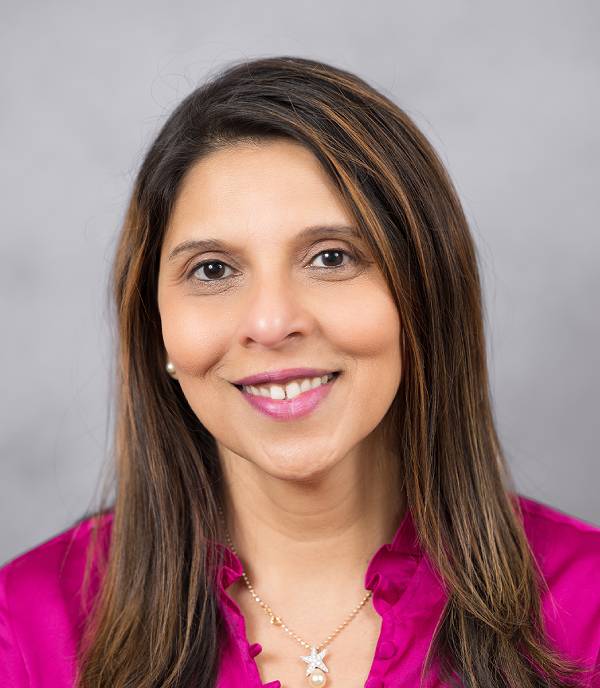
Professor, Physical Therapy
College of Applied Health Sciences
Bio: Tanvi Bhatt is a professor and director of the Cognitive Motor and Balance Rehabilitation Laboratory in the department of physical therapy. She is also co-director of the Midwest Roybal Center on Health Promotion and Translation and the newly founded Resource Center on Minority Aging. She has over 25 years of experience in the field of balance and gait rehabilitation for geriatric and neurological populations. Her research focuses on interactions between the cognitive, balance and locomotor systems and how they impact functional mobility and risk of falls. Bhatt investigates the neuromechanical basis of balance recovery from external perturbations such as slips and trips. Her research also focuses on designing intervention paradigms to reduce the risk of falls in healthy and pathological populations; these may include alternative cognitive and motor therapies such as exergaming and dance therapy. Bhatt has over 100 peer-reviewed publications and serves as the principal investigator on several National Institutes of Health grants, bringing more than $10 million in grant funding to UIC. She is known nationally and internationally for her work in fall prevention.
Presentation Title: Are Falls Inevitable or Preventable?
Abstract: One in three adults over the age of 65 experiences a fall annually. That’s a staggering statistic, but even more concerning is that falls are the leading cause of hip fractures, which can severely limit a person’s mobility for years. Many exercise-based programs are designed to reduce the risk of falls. However, we still have thousands of people slipping and tripping every day. My team and I at the Cognitive Motor and Balance Rehabilitation Laboratory are committed to teaching seniors how to prevent falls in their daily lives. In this talk, I highlight the cutting-edge work being done in our lab regarding fall-risk prediction, assessment and prevention. The overall goal of our research is to maintain or enhance functional independence, community mobility and participation in our aging population living with or without physical or cognitive disabilities.
Daniel Borzutzky, MFA
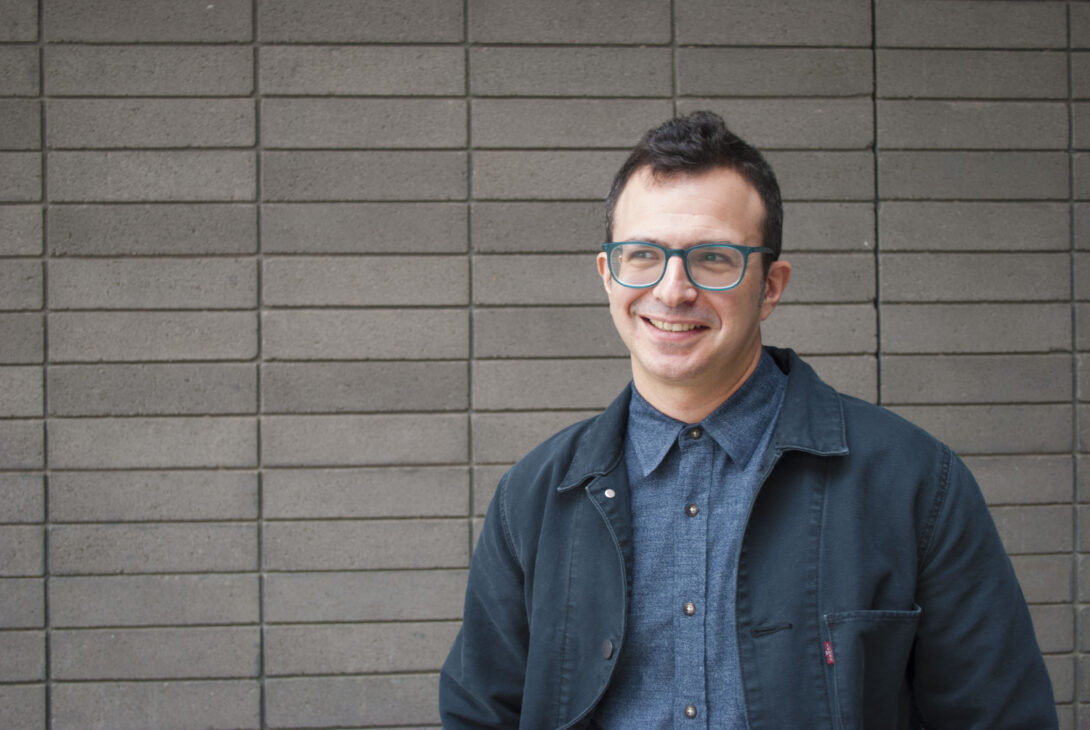
Associate Professor, English and Latin American and Latino Studies
College of Liberal Arts and Sciences
Bio: Daniel Borzutzky is an associate professor in English and Latin American and Latino Studies at UIC and director of the Center for Latinx Literature of the Americas. He is a poet and translator. His latest book, “The Murmuring Grief of the Americas,” will be published in August 2024. His other books include “The Performance of Becoming Human,” winner of the 2016 National Book Award; “Lake Michigan” (2018), a finalist for the Griffin International Poetry Prize; and “Written After a Massacre in the Year 2018” (2021). His most recent translations are of “The Deer Book” by Cecilia Vicuña (2024) and “The Loose Pearl” (2022) by Paula Ilabaca Nuñez, which won the PEN Award for Poetry in Translation. His translation of Galo Ghigliotto’s “Valdivia” won the American Literary Translator’s Association 2017 National Translation Award for Poetry. Borzutzky has translated collections by Raúl Zurita and Jaime Luis Huenún, and his work has been recognized with grants from the National Endowment for the Arts, the PEN/Heim Translation Fund and the Illinois Arts Council.
Presentation Title: “The Murmuring Grief of the Americas,” poems
Abstract: Professor Borzutzky presents poems from his forthcoming book, “The Murmuring Grief of the Americas,” to be published in August 2024 by Coffee House Press.
Paul Carlier, PhD
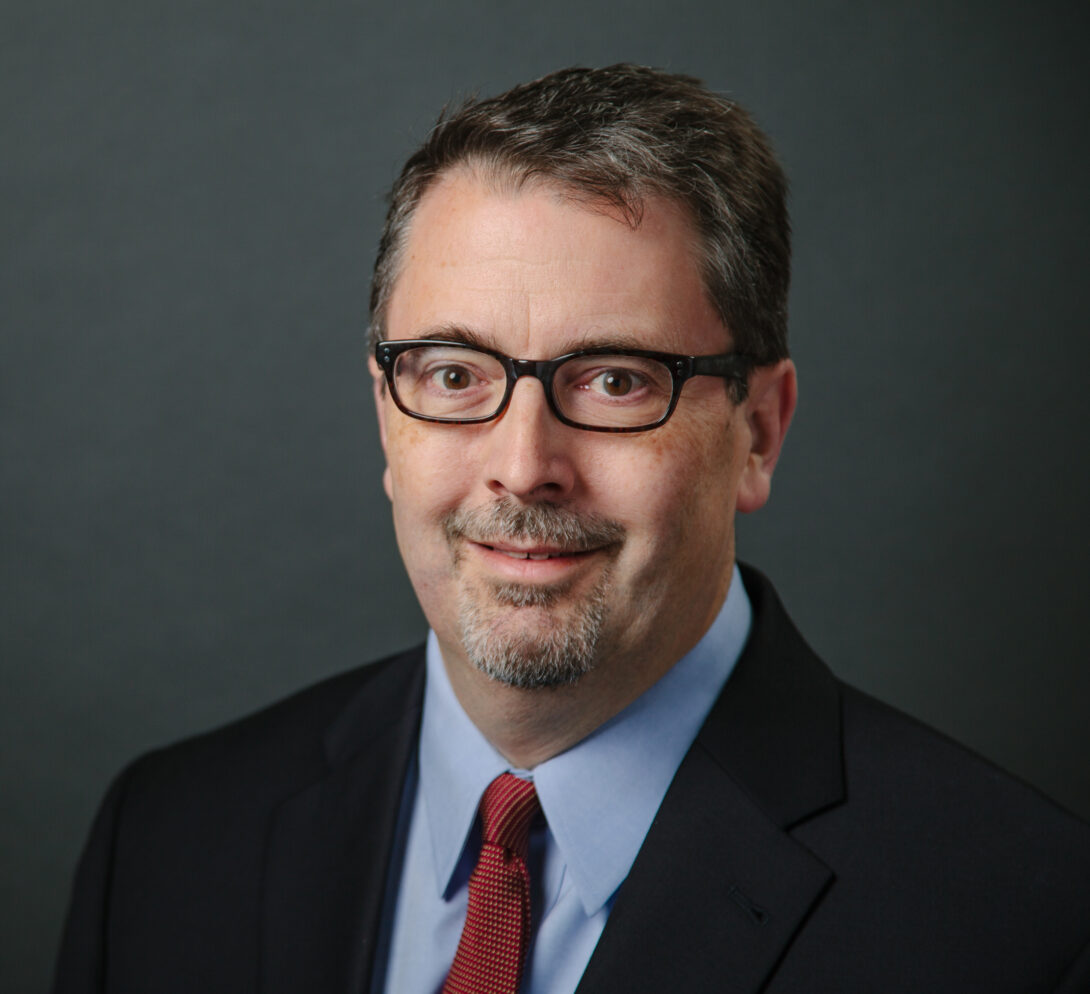
Director, UICentre
Pharmaceutical Sciences and Chemistry
Colleges of Pharmacy and Liberal Arts and Sciences
Bio: Paul R. Carlier is professor of pharmaceutical science, professor of chemistry and director of UICentre, the campus-wide drug discovery enterprise of UIC. He received degrees in chemistry from Hamilton College and the Massachusetts Institute of Technology, where he earned his doctorate degree. He began his independent academic career at the Hong Kong University of Science and Technology before moving to Virginia Tech. He started his current position at UIC in August 2022. The Carlier Lab uses the power of synthetic organic chemistry to develop new therapeutic agents for malaria and other infectious diseases. In his role as director of UICentre, Carlier identifies, supports and collaborates with multidisciplinary teams across the university, working on new cures in areas of unmet medical needs.
Presentation Title: UICentre: UIC’s catalyst for campus-wide, collaborative and community-responsive drug discovery
Abstract: UIC inventors have an enviable legacy in therapeutic development. They have created a widely used drug for HIV/AIDS (Prezista), a vaccine for shingles (Shingrex) and a repurposed tuberculosis vaccine to treat bladder cancer (BCG-Tice). Against this backdrop, in 2013, UIC founded UICentre to accelerate and support future therapeutic innovation. UICentre is currently staffed by nine PhD scientists and receives broad support from across the university. We receive technical assistance from faculty subject-matter experts, the University of Illinois Cancer Center and colleagues in the Research Resources Center and Office of Technology Management. We seek to foster research in many colleges across the university by creating and funding multidisciplinary teams of UIC scientists and physicians. We then provide our expertise in bioassay development, high-throughput screening and medicinal chemistry to advance basic science projects toward clinical application. Current projects in UICentre address cancer, viral infection and cardiovascular disease. In this talk I describe our approach to promoting team science that leverages the particular strengths of UIC faculty research and focuses on therapies for diseases disproportionately affecting our urban community.
Wonhwa Cho, PhD

Liberal Arts and Sciences Endowed Chair in the Natural Sciences, UIC Distinguished Professor and Head of Department of Chemistry
University of Illinois Cancer Center member in the Translational Oncology Research Program
Bio: Wonhwa Cho is the first Liberal Arts and Sciences Endowed Chair in the Natural Sciences, a UIC Distinguished Professor and head of chemistry. His research interest lies in the interface of chemistry and biology, with a focus on lipids and lipid-targeting drug development. He revolutionized lipid research by developing innovative lipid-imaging technology and discovering that lipids, especially cholesterol, drive cancer progression by activating specific cellular proteins by novel mechanisms. His research led to the development of a first-in-class lipid-protein interaction inhibitor as a novel cancer drug with unprecedented pharmacological properties. His work has been published in prestigious journals, including Nature Chemical Biology and Cell. He continues to develop a wide range of novel lipid-targeting drugs for breast cancer, colorectal cancer and Alzheimer’s disease. He was the first UIC recipient of the prestigious R35 MIRA Award from the National Institutes of Health. His contribution to the field of lipid science was recognized with the prestigious Avanti Award in Lipids from the Biophysical Society in 2018. He was elected a fellow of the American Association for the Advancement of Science in 2018.
Presentation Title: Cholesterol-targeting Cancer and Alzheimer’s Disease Drugs
Abstract: Cholesterol is associated with cancer and Alzheimer’s disease progression, but the mechanisms underlying these links are not known. Based on innovative lipid imaging and chemical biology techniques, the Cho research group discovered that cholesterol enriched in the specific cellular location drives cancer progression and treatment resistance in a cancer-cell-type-specific manner. Advanced drug discovery efforts led to a first-in-class cholesterol-targeting inhibitor for colorectal cancer with no dose-limiting side effect. The same approach has been successfully applied to develop precision medicines for various subtypes of breast cancer and Alzheimer’s disease.
Jamie Chriqui, PhD, MHS
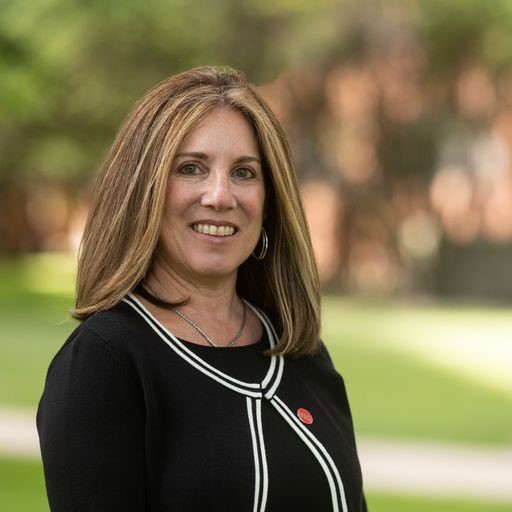
Senior Associate Dean and Professor, Health Policy and Administration, School of Public Health
Director of Health Policy Research, Institute for Health Research and Policy
University of Illinois Cancer Center member in the Cancer Prevention and Control Research Program
Bio: Jamie Chriqui is the senior associate dean and a professor in the School of Public Health at the University of Illinois Chicago. She also directs health policy research for the UIC Institute for Health Research and Policy. Chriqui’s research focuses on the implementation and impact of public health policies related to tobacco control, substance use, obesity, nutrition and physical activity on communities, schools and health and education outcomes. In recent years, she has focused on the physical-activity-orientation of land-use laws and policies nationwide and their impact on individual and community-level physical activity. Her work has been funded by the National Institutes of Health, Centers for Disease Control and Prevention, Robert Wood Johnson Foundation, the U.S. Department of Agriculture and other governmental and non-governmental agencies. She serves on many federal and organizational advisory boards and expert committees. She was a University Scholar from 2019-2022 and the UIC Distinguished Researcher of the Year in the Social Sciences in 2017.
Presentation Title: What Gets Measured, Gets Changed: The Art and Science of Policy Surveillance in Examining the Impacts of Public Policies
Abstract: Under the 10th Amendment, state governments are responsible for protecting the health and welfare of the public. As a result, state and even local governments nationwide have been at the forefront of the greatest public-health achievements of the 20th and 21st centuries. For example, public policies have mandated seatbelts, established blood-alcohol content limits, banned smoking in public places and established speed limits on our roads. The number of lives saved by these public-policy interventions has been monumental.
Researchers have studied the impacts of public policies on health and related outcomes for decades. Yet, such studies typically have used simple, dichotomous measures (for example, Is tobacco use restricted?Yes/no) rather than delving deep into the nuances of the law. This is where policy surveillance comes into play. Over the past 25 years or so, the field of policy surveillance has emerged to help generate quantitative measures of law and policy for use in examining the implementation and impacts of public policies over time across states, localities and school districts nationwide, or internationally. Policy surveillance, much like disease surveillance, is the ongoing, systematic collection, analysis, interpretation and dissemination of information about a given body of public health law and policy. With policy surveillance, we can use scientific methods to reliably measure changes in the breadth and depth, strength and comprehensiveness, restrictions or specificity of a policy issue over time and across jurisdictions. This data then can be linked using geocodes to community-, organizational- (schools, for example) or individual-level outcome data sets. Examples of how policy-surveillance data has been linked with outcome data across jurisdictions and over time include data on tobacco restrictions and reduced prevalence of smoking, bans of sugary drinks in schools and reduced intake of added sugars in schools, activity-oriented land-use policies and reduced rates of sedentary behavior and comprehensive restrictions on junk foods in schools and increased rates of fruit and vegetable consumption.
One of the primary challenges with policy surveillance is the time and cost it takes to compile data, often hundreds of hours of manual labor to review and code policies across jurisdictions and over time. Opportunities exist for using AI to expedite this process. While work in this area is evolving, it is often limited to identifying relevant laws and policies rather than helping with the process of coding or measuring the nuances in the laws and policies.
John Finan, PhD
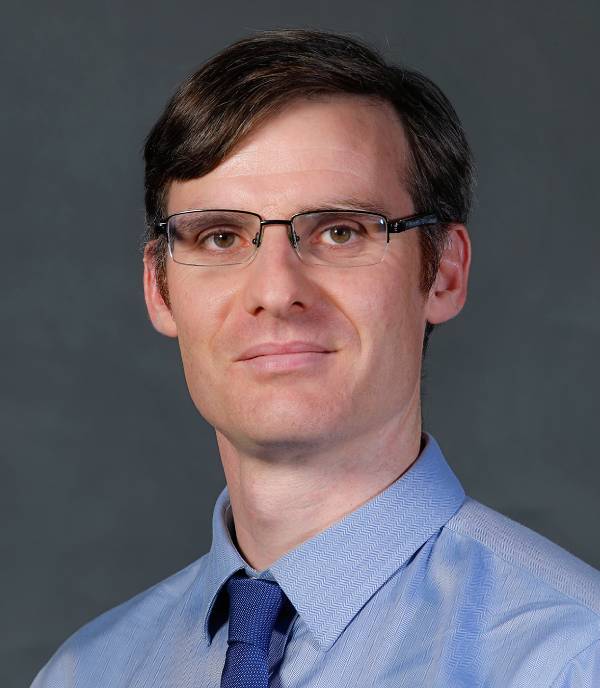
Assistant Professor, Mechanical and Industrial Engineering
College of Engineering
Bio: John Finan is an assistant professor in the mechanical and industrial engineering department at the University of Illinois Chicago. He studies the biomechanics of the human brain, particularly as they relate to understanding and treating traumatic brain injuries and their long-term consequences. In his research, he uses human brain cells and organoids (self-organizing aggregates of thousands of brain cells) derived from stem cells because they allow him to answer questions about how human brains differ from animal brains and why one human’s brain differs from another’s. He received his doctorate degree from Duke University, where he published work on improving motorcycle helmets and the biomechanics of cartilage. He also held a post-doctoral appointment at Columbia University in New York, where he studied the biomechanics of rat, pig and human brains and worked on a novel approach to treating brain swelling after trauma. His work has been funded by the National Institutes of Health and the National Science Foundation.
Presentation Title: Traumatic Brain Injury in a Dish
Abstract: Traumatic brain injuries affect different people in different ways. Some people are left devastated while others recover remarkably well. Our goal is to understand why some patients have good outcomes so we can use that information to help the patients with bad outcomes. The first step is to recreate the brain-injury process in our lab. We start by making human brain cells from human stem cells, which are in turn made from skin cells, blood cells or other cells that are easy to obtain. We grow these human brain cells in little balls about 1 millimeter in diameter called organoids. Then we build machines to violently deform these balls of cells the same way cells are deformed in a patient’s brain during an impact. The cells retain the genome of the patient from whom they were made. So if the patient is susceptible — or resilient — to trauma, the cells will be, too. Also, individual genes can be removed or switched into a mutant form so we can introduce risk genes for neurodegeneration and see if trauma amplifies their toxic effects. We can also use this system to ask other important questions. For example, concussion sometimes makes people more vulnerable to future impacts to the head. We can traumatize organoids repeatedly to figure out what exactly drives this vulnerability. We can test new drugs to see if they mitigate the consequences of trauma in human brain cells (there are currently no drugs certified by the Food and Drug Administration to be safe and effective to treat traumatic brain injury). By engineering new machines and integrating new brain-cell culture techniques, we can learn about this terrible disease in new and powerful ways.
Ruixuan Gao, PhD
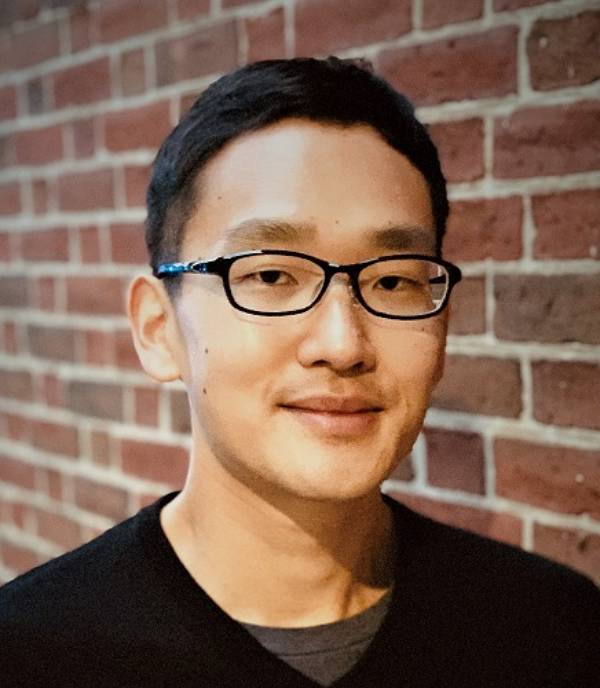
Assistant Professor, Chemistry and Biological Sciences
College of Liberal Arts and Sciences
Bio: Ruixuan Gao is an assistant professor of chemistry and biological sciences at the University of Illinois Chicago. His research interest lies at the interface of chemistry and biology, with a focus on elucidating the molecular nature of biological structures and processes central to life and human health. His research group designs small-molecule probes, macromolecular matrices and supramolecular assemblies to detect and quantify biomolecules in intact biological specimens and develops microscopy and imaging methods to track various molecular entities at their natural spatiotemporal scale. His lab uses these tools to investigate the molecular bases of critical biological functions and dysfunctions, including synaptic transmission, neuronal connection, neurodegeneration and mental disorders. Gao received his doctorate degree from Harvard University and completed his postdoctoral training at MIT and Howard Hughes Medical Institute’s Janelia Research Campus.
Presentation Title: A Biochemical Approach Towards Unlocking the Molecular Complexity of Life
Abstract: Living organisms are composed of structures spanning orders of magnitude in size and are assembled from tens of thousands, if not more, of distinct molecular entities. Understanding the function and dysfunction of such complex biological systems often requires investigating their molecular composition and dynamics at high spatiotemporal resolution. But conventional analytical methods suffer from the tradeoff between spatial resolution, molecular specificity and speed. In this presentation, I focus on our lab’s ongoing efforts to overcome these limitations. By taking advantage of chemical modification and transformation of biological specimens, we have demonstrated spatial mapping of native biomolecules such as proteins, RNAs and lipids in healthy and pathological brain tissue at subcellular resolution. By combining this approach with high-throughput fluorescence microscopy, we have characterized the morphology of dendritic spines, determined the location of synapses and studied the radial and longitudinal profile of axons and myelinations across the entire stretch of a mouse cortical column. We also have mapped dopaminergic neuron projections and close to 40 million presynaptic sites across a fruit fly brain.
Decoteau J. Irby, PhD
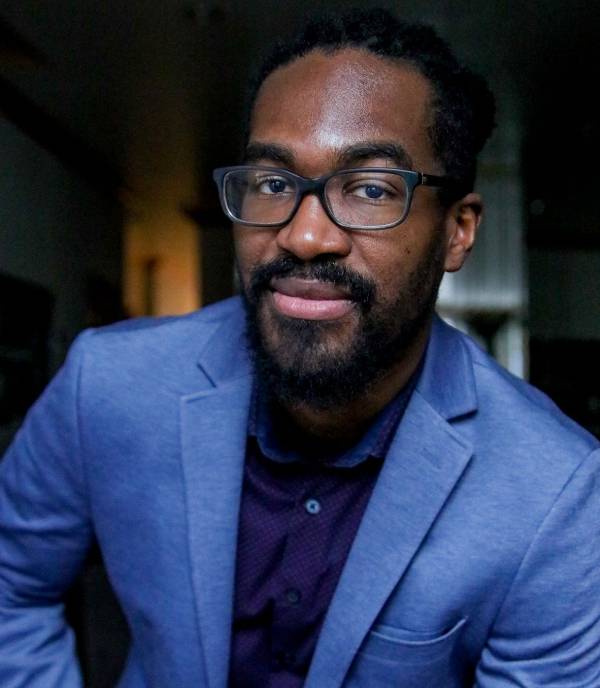
Associate Professor, Educational Policy Studies
College of Education
Bio: Decoteau J. Irby is an associate professor of educational policy studies at the University of Illinois Chicago. His research explores how equity-focused school leadership improves academic achievement and socio-emotional well-being for Black children and youth across a range of K-12 educational settings. Specifically, he examines how adults make sense of and use their personal and collective influence and resources to transform educational organizations to benefit students of color.
He is the author of numerous peer-reviewed articles and several books, including “Stuck Improving: Racial Equity and School Leadership” (2021, Harvard Education Press), “Magical Black Tears: A Protest Story” (2021, Derute Consulting Cooperative), “Black Participatory Research” (2016, Springer/Palgrave McMillan) and “Dignity-affirming Education: Cultivating the Somebodiness of Students and Educators” (2022, Teachers College Press). Irby is highly sought-after as a speaker, leadership coach and organizational-improvement consultant.
Presentation Title: Five Organizational Conditions to Advance Racial Equity
Abstract: Why do so many organizations espouse a commitment to racial equity yet continually fail to actualize their priorities to support and achieve better outcomes for Black, brown and other racially marginalized people? What if the stubbornly persistent lack of progress is not because of low effort but low capacity to improve? Drawing insights from his book “Stuck Improving: Racial Equity and School Leadership,” Irby provides an overview of the dynamic process of working to achieve racial equity in organizations. He argues that to enact racial equity improvements, leaders must cultivate their organization’s capacity for these improvements by growing resources that advance an array of racial equity priorities.
He introduces five interlocking resources:
- Black and brown people’s influential presence
- Curated white racial discomfort
- Courageously confrontational culture
- Collective awareness of racial emotions and beliefs
- Race-conscious inquiry cycles (leadership)
At the end of Irby’s talk, participants will understand what it means to have the capacity for racial equity improvement, know five essential resources for advancing racial equity improvement in organizations and have a general sense of what leaders must do to cultivate and leverage these resources for the purposes of improvement.
Mary Khetani, ScD, OTR/L, FAOTA

Professor, Occupational Therapy, PhD Program in Rehabilitation Sciences
College of Applied Health Sciences
Bio: Mary Khetani is an occupational therapist and rehabilitation scientist with more than 20 years of experience in pediatric research and clinical and community-based practice. She is a tenured professor and associate director of graduate studies, for which she contributes to graduate training in research methods, occupational therapy, rehabilitation theory and processes of care. She also directs the Children’s Participation in Environment Research Lab. Since 2012, the lab has attracted federal and foundation funding for interdisciplinary and multi-site research and knowledge-translation projects. These projects leverage stakeholder engagement and diverse methodologies to advance conceptually grounded, evidence-based, innovative digital health solutions that advance family-centered and participation-focused pediatric rehabilitation in service systems like early intervention, where Khetani began her career as a practitioner. The lab has trained and placed more than 30 women for research-engaged career paths in academia and practice. Khetani also has earned recognition as a Fellow of the American Occupational Therapy Association.
Presentation Title: What Surrounds Us, Shapes Us
Abstract: Early childhood, the first five years of a child’s life, typically includes accessing opportunities to experience the magic of everyday moments within responsive care. These experiences of being meaningfully occupied with others give young children rich opportunities to promote positive skill development. Yet, nearly 53 million young children worldwide experience disability beginning in early childhood. They and their families can benefit from equitable access to timely pediatric rehabilitation/habilitation services to improve their everyday life experiences. I have directed the Children’s Participation in Environment Research Lab team for more than a decade to develop and implement the Participation in Environment Measure approach for use in pediatric rehabilitation/habilitation, including in early childhood. The measure is a suite of evidence-based tools to understand and improve how young children participate in valued activities in their homes and communities. In this talk, I introduce how mentoring and sponsoring across difference has been pivotal in accomplishing key scientific discoveries behind this smart and scalable measurement that holds promise for building and testing robust models to identify intervention targets in specified contexts, personalizing the rehabilitation/habilitation experience for young children and families and facilitating data-driven approaches to strengthen service quality.
Robert Klie, PhD

Professor and Head of Department of Physics, College of Liberal Arts and Sciences
Bio: Robert F. Klie is a professor and head of the physics department. As director of the Nanoscale Physics Group, he specializes in experimental condensed-matter physics. He serves as the academic director of the UIC Electron Microscopy Core Facilities and co-director of the UIC Institute for Functional and Regenerative Materials.
Klie’s group focuses on atomic-resolution characterization of materials using state-of-the-art in-situ electron microscopy. He pioneered novel characterization approaches that combine solid-state physics with bio-materials and polymer science. Klie was recently awarded a grant from the National Science Foundation to purchase a first-of-its-kind electron microscopy that will enable the next level of materials characterization at UIC for energy-storage/conversion, quantum computing and superconducting materials.
Klie has published over 240 peer-reviewed papers with more than 11,000 citations. His work has been published in prestigious journals such as Nature and Science. His scientific achievements have been recognized with numerous prestigious awards, and he is a fellow of the Microscopy Society of America.
Presentation Title: Seeing Becomes Knowing: How Electron Microscopy is Defining our Atomic-Scale View of Materials
Abstract: Over the last two decades, we have witnessed a paradigm shift in the way we characterize materials at the fundamental, atomic scale. This latest revolution in resolution began, in part, with developments at UIC in the late 1990s with the first successful demonstration of atomic-resolution imaging, as well as with the development of lenses that dramatically improved the spatial resolution of transmission and scanning transmission electron microscopy. These developments were followed by faster, more sensitive direct electron detectors, high brightness and mono-energetic electron sources for electron spectroscopy and, most recently, magnetic field-free lenses.
As a result of these transformational discoveries, we now can study materials with unprecedented resolution, sensitivity and precision. While spatial and energy resolutions approach the physical limits of the structures we are trying to study, transmission electron microscopy also has enabled a variety of in-situ experiments at close to atomic resolution, allowing us to study the motion of ions in liquids, across interfaces and in solid-state matter.
In my talk, I highlight how we use electron microscopy to study atomic-scale structure, chemistry and dynamics in a wide range of materials, including next-generation rechargeable batteries, solar cells, novel high-temperature superconductors and bio- and other hybrid materials. I also present my vision for the future of electron microscopy, including new instruments to be installed at UIC, that will allow unprecedented imaging and spectroscopy methods, bridging the gap between condensed matter and soft/bio-matter characterization.
Mary Dawn Koenig, PhD, RN, FACNM
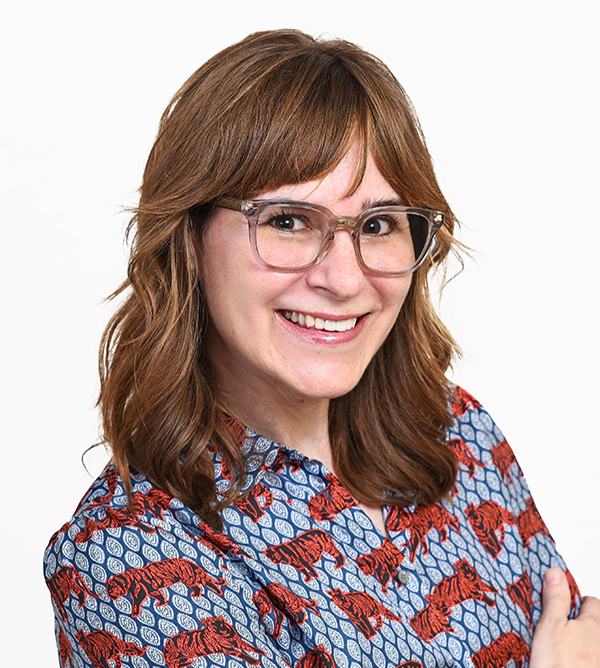
Associate Professor, Human Development Nursing Science
College of Nursing
Bio: Mary Dawn Koenig is a certified nurse-midwife and associate professor at the University of Illinois Chicago College of Nursing. Born in Canada, she received her bachelor of science degree in nursing from McMaster University, her master of science degree in nursing with a specialty in midwifery from Yale University and her doctorate degree in nursing from the University of Pennsylvania. Koenig investigates how inflammation, the iron-regulated hormone hepcidin and genetic factors in the placenta determine the flow of iron in the maternal and fetal systems. Her goal is to develop innovative, safe and effective therapies to optimize maternal and fetal iron bioavailability. She is currently funded as multiple principal investigator through the National Heart, Lung, and Blood Institute to determine preliminary efficacy of oral lactoferrin to prevent iron deficiency anemia in pregnant women with obesity and through the National Institute of Diabetes and Digestive and Kidney Diseases to test the intervention of time-restricted eating on weight, inflammation and iron status among pregnant women with severe obesity.
Presentation Title: The Irony of Iron Supplementation in Pregnancy Complicated by Inflammation
Abstract: Maternal iron deficiency anemia increases the risk of adverse pregnancy outcomes and can negatively impact the iron endowment of the neonate, causing irreversible deleterious effects on neurodevelopment. To avert iron deficiency anemia in pregnancy, women in the U.S. are universally prescribed a daily oral supplement containing approximately 27 milligrams of iron. The use of oral prenatal supplements containing iron as a prophylactic approach to prevent iron deficiency anemia is suboptimal as evidenced by upwards of 18% of pregnant women still experiencing iron deficiency anemia despite being prescribed a prenatal supplement containing iron. There is growing concern regarding the efficacy of this one-size-fits-all approach, specifically for women with underlying inflammation. In the context of inflammation, the hepcidin-ferrportin axis is disrupted, making iron from diet, including supplemental iron, and body stores less bioavailable. This indicates an urgent need to develop and test new methods to prevent maternal iron deficiency anemia among women with inflammation. Our team is testing innovative dietary interventions to address and prevent iron deficiency anemia, including novel dietary and supplementation approaches among women with obesity-concomitant inflammation. Our team is funded by the National Heart, Lung, and Blood Institute to test the preliminary efficacy of oral lactoferrin supplementation to prevent maternal iron deficiency anemia among obese women. Lactoferrin is a natural compound found in secretions, including milk, from mammals and is an important regulator of body iron balance given its effects on inflammation and the hepcidin-ferroportin axis. Our team is also funded by National Institute of Diabetes and Digestive and Kidney Diseases to test the intervention of time-restricted eating on weight, inflammation and iron status among pregnant women with severe obesity. Another avenue of exploration our team is working on is probiotics, live micro-organisms that can have health benefits. There is increasing evidence that consuming the probiotic Lactiplantibacillus plantarum 299V can enhance dietary iron absorption and improve iron status including in the context of pregnancy. With anticipated funding from the National Institute of Child Health and Human Development, our study will test the efficacy of this accessible, low-cost and safe probiotic as a novel approach to optimizing iron status in women at risk for iron deficiency anemia in pregnancy. We will also explore intervention effects on infant neurodevelopment at birth using auditory brainstem response testing. Lastly, we will examine gut microbial, placental and iron regulatory mechanisms through which Lactiplantibacillus plantarum 299V imposes its effect on iron metabolism. Our work on novel dietary therapies to address iron nutrition and prevention of iron deficiency anemia has the potential to transform prenatal care and health outcomes for hundreds of thousands of pregnant women and their children in the U.S. annually and millions worldwide.
Clare Lyster, MArch
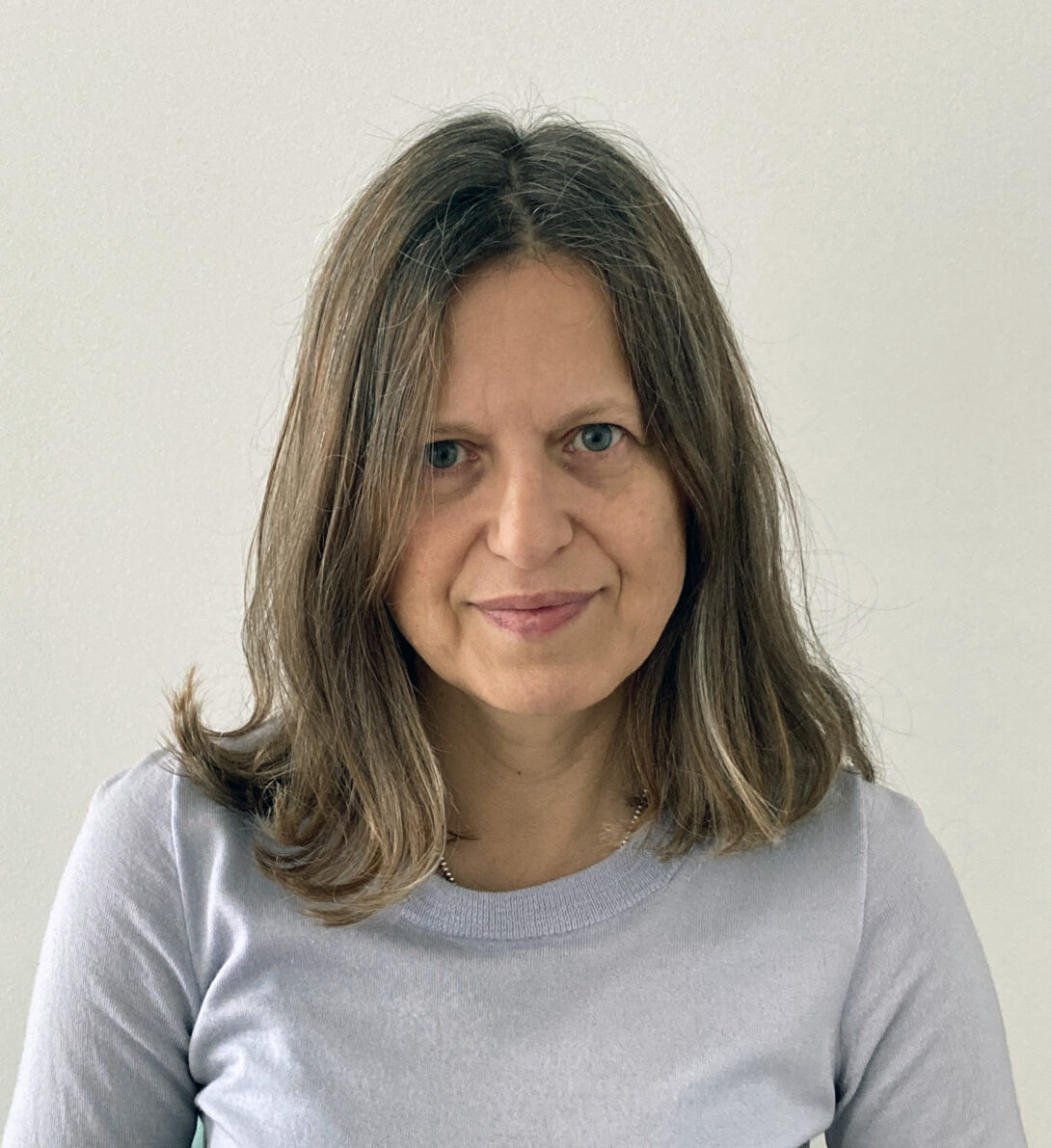
Professor, School of Architecture
College of Architecture, Design and the Arts
Bio: Clare Lyster is an architect who explores how metabolic and socio-technical systems territorialize the built environment and what the implications are for design. She is the author of “Learning from Logistics: How Networks Change Our Cities” (Birkhäuser, 2016), which explains the fallout of emerging logistical systems such as Amazon and Fed Ex for the city. She is co-editor of “Third Coast Atlas: Prelude to a Plan” (Actar Publishers, 2017), an in-depth analysis of the urbanization of the Great Lakes from the perspective of its hydrological, industrial and ecological systems, and “States of Entanglement: Data in the Irish Landscape” (Actar Publishers, 2021), highlighting the material footprint of contemporary media systems.
Lyster operates a design-based research practice in Chicago called CLUAA. She received the UIC 2019 Distinguished Scholar of the Year in Art, Architecture, Design and the Humanities; the CADA Distinguished Faculty Award 2019-2021; and the 2019 SOM Foundation Research Prize for the project “Hot Farms: How Emails Grow Tomatoes,” the subject of a forthcoming book, “Future Farm Form” (Actar Publishers, 2025). Her work has been funded by the Graham Foundation for Advanced Studies in Fine Arts; the UIC Awards for Creative Activity; and the Arts Council, Ireland. She is a professor at the UIC School of Architecture.
Presentation Title: Architecture and Urban Systems
Abstract: Lyster explores how infrastructural systems shape territory, specifically how the material and temporal aspects of metabolic and socio-technical networks configure the built environment and the fallout of this for design. Her research spans post-industrial infrastructure, logistics, information and communication networks and new formats for food production. She delivers her work through writing articles, editing, publishing books and by contributing to exhibitions and design projects. This range of delivery befits her design-based approach to scholarship, employing design as a form of knowledge production that contemplates the spatial transformations taking place around us.
Her other projects include a design competition for the revitalization of the Erie Canal that seeks ways to inject life into the historic canal towns, now that the waterway is no longer used for commercial traffic. Winterwaterway is a prototype for an artificial public winter landscape that hosts a range of winter activities embedded into the canal between November and April, when the waterway is drained.
In the Annex arts collaboration, for the Irish pavilion at the 17th Architecture Biennale in Venice in 2021, Lyster worked Entanglement, an exhibition on cloud-based-data storage infrastructure. Entanglement subverts the utopian conceit of the cloud as an ethereal or atmospheric space and instead reveals the material and physical footprints of cloud-based data storage — resources, power, rare earth minerals and large land footprints —that data storage demands.
Another project, “Farmhouse,” productively integrates distributed cloud-based storage with greenhouse food production. It is a speculative design for how architecture can envision the coupling of seemingly disparate systems for the greater good.
Overall, whatever infrastructure is under the lens, Lyster’s work employs a holistic overview by interrogating the agency of design across scales from the macro level of planetary systems to the meso-scale of regional landscapes to the micro-scale of a pointed architectural intervention.
Alexander Mankin, PhD
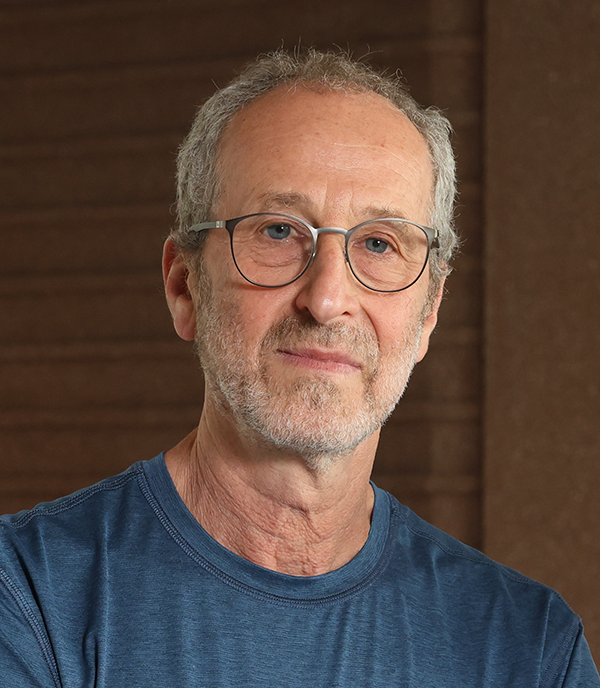
Professor of Pharmaceutical Sciences, UIC Distinguished Professor and Neyfakh Collegiate Professor
College of Pharmacy
Bio: Alexander Mankin is a professor of pharmaceutical sciences, UIC Distinguished Professor and Neyfakh Collegiate Professor. Mankin received his doctorate degrees in philosophy and sciences from the Lomonosov Moscow State University, and he joined the Center for Pharmaceutical Biotechnology in the UIC College of Pharmacy in 1993 as an assistant professor.
The research of the Mankin/Vázquez-Laslop lab, which Mankin co-runs with research professor Nora Vázquez-Laslop, focuses on the ribosome, the molecular machine that makes all cellular proteins. The interests of the lab range from the origin and function of the ribosome to the mechanisms of action of antibiotics that inhibit protein synthesis. The lab’s findings have provided critical insights into the action of antibiotics, those that have been used for decades and those discovered only recently. They have also revealed how bacteria evade antibiotics and illuminated new ways to combat antibiotic resistance. The results of these investigations have been published in prestigious scientific journals such as Nature and Cell and have provided the bases for several patent applications.
Presentation Title: Antimicrobial Peptides Kill Pathogenic Bacteria Through a Uniquely Peculiar Mechanism
Abstract: The ribosome, the most complex molecular machine in the bacterial cell, is responsible for making all the cellular proteins. Being critical for bacterial cell growth, the ribosome is one of the best targets for antibiotics that help us combat bacterial infections. The dangerously rapid spread of multidrug resistant bacterial pathogens urges the search for new antibiotics, especially those with novel properties and mechanisms of action. The Mankin/Vázquez-Laslop lab at the department of pharmaceutical sciences and the Center for Biomolecular Sciences (College of Pharmacy, UIC), has discovered that antimicrobial peptides produced by honeybees and other insects kill bacteria by binding to the ribosome and stopping protein synthesis in an unprecedented way. While most of the known antibiotics either bar the ribosome from starting protein synthesis or arrest it when it is already making a protein, the bee antibacterial peptides stop the ribosome on its tracks at the very last stage of protein production. Like jamming the exit gate of the car production factory, arresting only few ribosomes at this last stage brings to a halt the entire protein synthesis assembly line, leading to rapid bacterial cell death. Antibacterial peptides with similar but distinct features are produced by many other insects. They can be exploited for developing new medicines that could target dangerous microbes.
Tanera Marshall, MFA
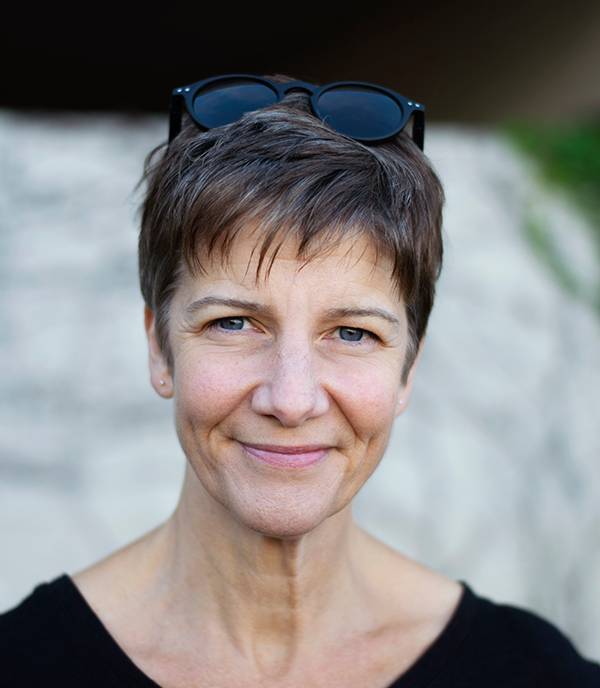
Associate Professor, Theatre and Music
College of Architecture, Design, and the Arts
Bio: Tanera Marshall is a voice and accent specialist in theater, TV and film. She has worked with actors on “The Brutalist” (Adrien Brody, coming this fall), “Hunger Games” (Rachel Zegler and Tom Blyth), “Asteroid City” (Jason Schwartzman), “Widows” (Elizabeth Debicki and Michelle Rodriguez), “Queen & Slim” (Daniel Kaluuya), “Public Enemies” (Marion Cotillard), “The Lucky Ones” (Rachel McAdams) and the “Divergent” series. In television, she worked with actors in “The Bear,” “61st Street,” “Station Eleven,” “Fargo” and “Chicago Fire.” Her work in theater has included Broadway tours of “Hamilton,” “Billy Elliot” and “Dirty Dancing” and several productions at Steppenwolf, the Goodman Theatre, Congo Square Theatre, TimeLine and Court Theatre.
Marshall has collected and archived accents from the Caribbean, Alaska and several First Nations/Native American communities for The International Dialects of English Archive, where she is a senior editor-at-large. She was a teaching artist in Chicago Public Schools for 10 years and a UIC University Scholars Award recipient in 2016. She earned her bachelor’s degree at Oberlin College and her master’s degree at DePaul University Theatre School and is an Associate Teacher of Fitzmaurice Voicework.
Presentation Title: Body and Soul: Storytelling in Accents
Abstract: Accents in theatre, TV and film must be compelling and true to serve the story well. This is best achieved with the use of real accents adapted from real people. The work of an accent specialist collaborating with actors involves not only analysis of the physical dimension of an accent but also consideration of its function as a rich biography of the person to whom the accent belongs.
Melissa Martin, PhD
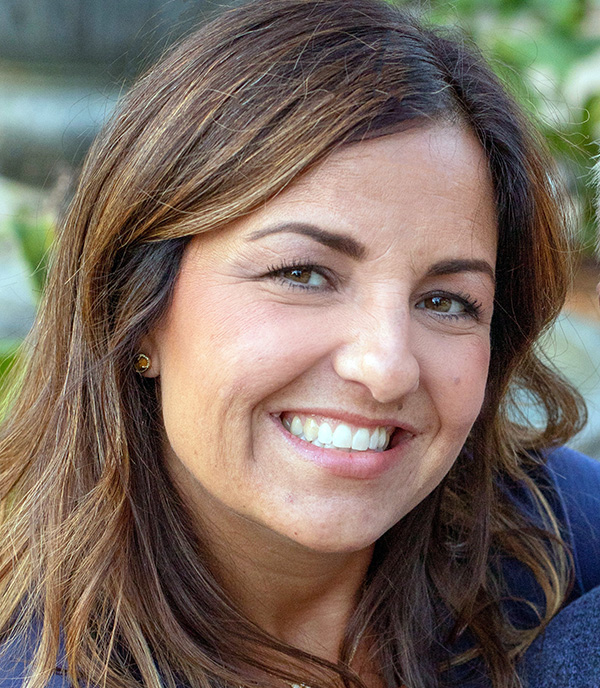
Michael B. Mikhail Associate Professor of Accounting and Interim Department Head
College of Business Administration
Bio: Melissa Martin is the Michael B. Mikhail Associate Professor of Accounting and interim department head in the department of accounting. She has been at UIC since 2015 following positions at Rice University and Arizona State University. She earned her doctorate degree from the University of Southern California and her master’s degree in finance and bachelor’s degree in accounting from Texas A&M University. Before starting her academic career, she worked for Deloitte.
Martin’s research focuses on management control systems and emphasizes incentives and compensation. She conducts field research by working with firms ranging from small local companies to large multi-nationals to answer research questions relevant to both research and practice. Her research has been published in top accounting and management journals including Academy of Management Journal, Contemporary Accounting Research, Journal of Management Accounting Research, Journal of Applied Psychology and Review of Accounting Studies. She is an editor at the Journal of Management Control and an associate editor at the European Accounting Review and Journal of Management Accounting Research.
Presentation Title: Innovative Research in Management Accounting: Control Systems and Contracting
Abstract: Management accounting systems have long been used to direct organizations toward desired outcomes. While these systems have always relied on data to inform decision-making, the explosion of data available from both internal and external sources provides incredible opportunities for the management accountant. Here we look at how that data, and related data analysis techniques, allows us to better understand the problems managers face and the solutions accounting information can provide. We look broadly at data sources and specifically at applications of this innovative data. I provide a short synopsis of one study using innovative data to answer management accounting questions. I discuss how taxi cab data in New York City can help us understand how managers might influence shareholder voting on compensation contracts.
Yamilé Molina, PhD, MPH, MS
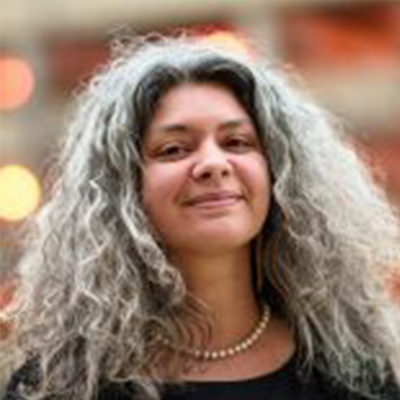
Associate Professor, Division of Community Health Sciences and Associate Director, University of Illinois Cancer Center and Mile Square Health Center
School of Public Health
Bio: Yamilé Molina is an associate professor in the division of community health sciences in the School of Public Health, an associate director for community-engaged research for the Mile Square Health Center and the associate director for community outreach and engagement at the University of Illinois Cancer Center. Inequities in cancer have been her primary focus as a researcher, administrative leader and community advocate, particularly for underserved racial/ethnic groups, rural residents and LGBTQ communities. Molina’s work leverages an asset-based perspective to address adverse social determinants to health and barriers to care, including costs and transportation, through enriched community-clinical partnerships.
Presentation Title: From Recipient to Resource: The Value of Conceptualizing Black and Latinx Research Participants As Change Agents in Breast Health
Abstract: Racial and ethnic inequities in breast cancer persist and disproportionately impact Black and Latino communities, despite decades of multi-sector efforts in research, practice and policy. A popular multitiered, evidence-based intervention strategy is community navigation to free/low cost, coordinated, culturally astute breast healthcare. The effects of this intervention are often underestimated, given the exclusive focus on patient outcomes. Conceptual frameworks and community practice have described multilevel, health-protective ripple effects which are not routinely assessed. This presentation provides examples of National Institutes of Health-funded studies that demonstrate the multilevel impacts of these community programs on the breast healthcare uptake of Black and Latino people.
Case studies include a secondary network analysis of the navigation on network-level promotion of breast health and screening behaviors among 100 Black survivors and 142 network members. In another case study, a prospective trial tested the impact of a network-driven community intervention relative to a standard community program on 145 Latinas who were non-adherent to breast-cancer screening guidelines.
Both studies suggest that receiving community health programming is associated with significantly greater patient-driven promotion of guideline-concordant screening. Preliminary findings further suggest greater screening among navigated participants and networks. Altogether, findings suggest social network methods are a promising approach for breast health interventions and may be particularly impactful for marginalized and resilient communities.
John Monaghan, PhD
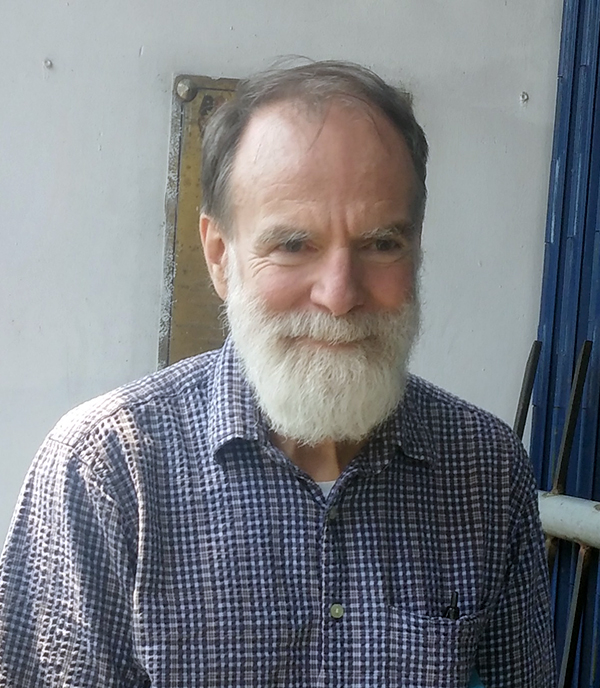
Professor of Anthropology
Bio: John Monaghan specializes in ethnohistory, religion and the study of Mexico’s indigenous people. Before joining the faculty at UIC, Monaghan taught at Vanderbilt University and received a doctorate degree at the University of Pennsylvania.
Presentation Title: The Center for the Recovery and Identification of the Missing
Abstract: The Center for the Recovery and Identification of the Missing is a federally funded research unit recently approved by the Illinois Board of Higher Education. It focuses on recovering the remains of soldiers missing in action, on developing tools to aid in search and rescue and on providing technical support to human-rights investigations. The center’s work is interdisciplinary, involving UIC students and faculty from engineering, history and anthropology and local researchers in the Pacific, Southeast Asia and Europe.
Gholdy Muhammad, PhD
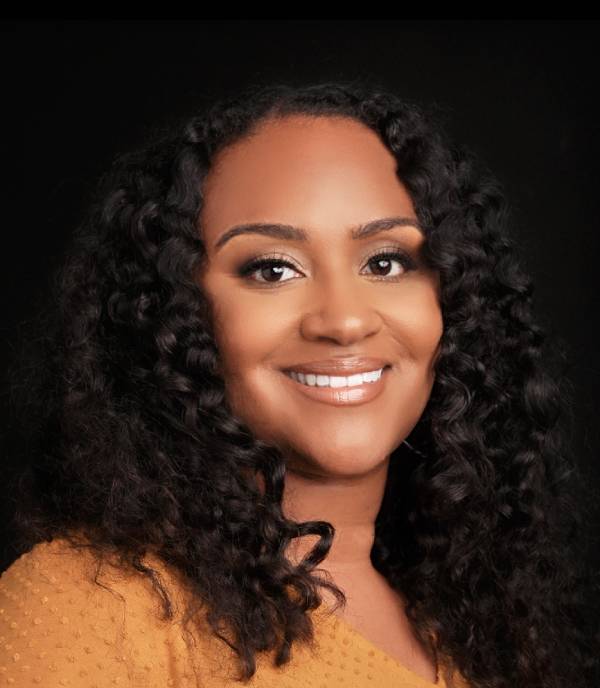
Associate Professor of Literacy, Language and Culture, Curriculum and Instruction
College of Education
Bio: Gholnecsar “Gholdy” Muhammad is an associate professor of literacy, language and culture at the University of Illinois Chicago. She previously was a classroom teacher, literacy specialist, school district administrator, curriculum director and school board president. Muhammad studies Black historical excellence in education with the goal of reframing curriculum and instruction today. Her scholarship has appeared in leading academic journals and books, and she has received many national awards. She is the author of the bestselling books “Cultivating Genius” and “Unearthing Joy.” Her Culturally and Historically Responsive Education Model has been adopted in thousands of schools in the U.S. and school districts in Canada. In 2022, 2023 and 2024, she was named among the top 1% Edu-Scholar Public Influencers for her impact on policy and practice.
Presentation Title: Cultivating Genius, Justice and Joy in Education
Abstract: In this talk, Muhammad covers three major pursuits of education that are often neglected when teaching and learning in schools: genius, justice and joy. She discusses the historical excellence of Black literary societies from the early 1800s. These were some of the nation’s earliest book clubs and educational organizations designed to evaluate the academic and personal growth of Americans, yet this history is rarely known or taught in schools. Within these societies, students learned language, science, mathematics, history, law, economics and art. Through the lens of this history, Muhammad researched and developed her Culturally and Historically Responsive Education model with the goal of educational excellence in pre-K through 12 and higher education. This model is essential for accelerating the growth of all students and, uniquely, youth and people of color, who historically have been excluded and underserved in schools within texts, learning standards, policies and pedagogical practices. This model helps educators teach in ways that are responsive to developing and elevating students’ genius, justice and joy. It has five goals:
- Identity development: Help students make sense of who they are and the diverse lives of others. Connect pedagogy to diverse cultures and identities.
- Skill development: Help students develop proficiencies across content areas, state learning standards and learning objectives.
- Intellectual development: Help students gain new knowledge set into the context of the world.
- Criticality: Help students name, understand, question and disrupt oppression (including anti-racism) in humanity and the world.
- Joy: Help students uplift and recognize the beauty, aesthetics, truth and personal fulfillment in humanity and the world.
In this talk, Muhammad covers history and her educational model with the goal of centering joy as the ultimate purpose for schools. She encourages and motivates educators to be more inclusive in their teaching practices of these five collective pursuits and to learn the importance of integrating cultural, racial, linguistic and historical responsiveness into their learning goals, lesson plans and texts used to teach.
Ian Papautsky, PhD
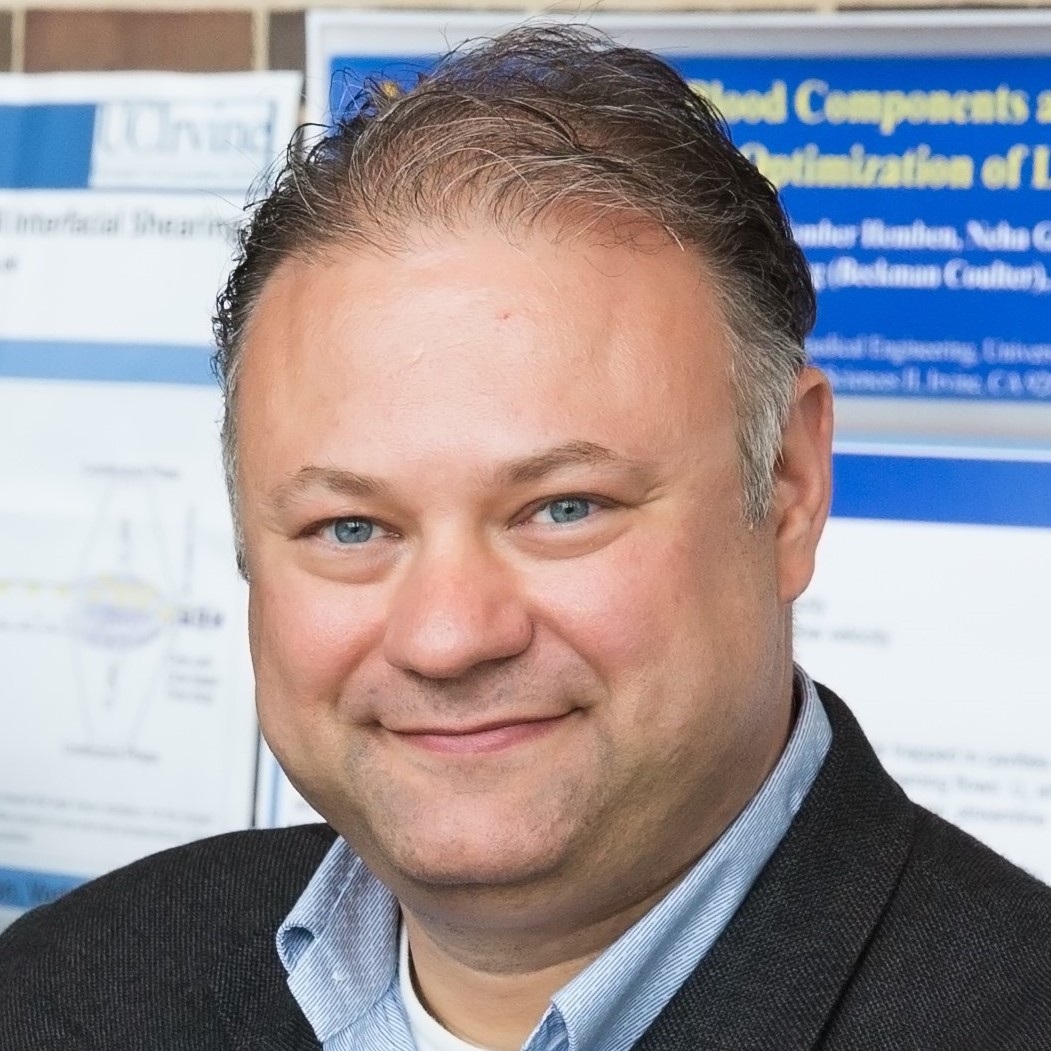
Richard and Loan Hill Professor, Biomedical Engineering
Colleges of Engineering and Medicine
University of Illinois Cancer Center member in the Translational Oncology Research Program
Bio: Ian Papautsky is the Richard and Loan Hill Professor in the biomedical engineering department. His lab focuses on using microfluidics to innovate blood analysis. Papautsky pioneered the inertial microfluidics technology for label-free isolation and analysis of rare cells. His recent work has focused on applying this approach to the fractionation of blood, as well as capture and subsequent molecular profile analysis of circulating tumor cells for liquid biopsy. Papautsky is also co-director of the National Science Foundation Center for Advanced Design and Manufacturing of Integrated Microfluidics, an industry-university collaborative research center that fosters interactions between academics and businesses in the areas of medical devices, pharmacology and precision agriculture. Papautsky joined the University of Illinois Chicago in 2016. He has been recognized with many awards and honors, including Ohio Bioscience 30 in Their 30s. He is fellow of the American Institute for Medical and Biological Engineering and the Royal Society of Chemistry.
Presentation Title: Microfluidics for Liquid Biopsy and Targeted Therapies
Abstract: Microfluidics is both the study of the behavior of fluids through microscale channels and the engineering of miniaturized devices. Microfluidics has advanced the fields of biology and medicine by miniaturizing devices to the scale of cellular samples and enabling precise manipulation of cells. Cell processing has been a major focus, including sorting, culture and analysis. One of the more promising approaches, called inertial microfluidics, permits cell separations based on size alone and has the potential for selective isolation of rare cells. A prominent application has been the isolation of circulating tumor cells that are shed into the bloodstream by the primary malignant tumor (cancer), an application called liquid biopsy. Although the existence of circulating tumor cells is known, they are notoriously challenging to capture. These cells are fragile, heterogeneous and extremely rare, typically less than 10 cells per 5 billion erythrocytes (red blood cells) in 1 milliliter of whole blood. Nevertheless, the minimally invasive liquid biopsy offers a potential for early diagnosis and dynamic monitoring, as circulating tumor cell count alone has been demonstrated to predict patient survival in some cancers.
Another promising area for microfluidic technologies is in 3D cell culture to model cancer in vitro. Such models of disease are increasingly valuable for monitoring response to therapies and the emergence of mutations. Although tissue biopsies are commonly used at diagnosis, these procedures are often done by fine-needle aspiration. That means materials available for cell-based diagnostics for drug vulnerability are severely limited. Therefore, microfluidic platforms for 3D modeling of cancer that rely on patient-derived tissues and recapitulate cancer biology are needed to evaluate patient-specific drug response and determine effective drug combinations for patients. We are developing microfluidic platforms capable of label-free screening for circulating tumor cells directly from unmodified whole blood, as well as microfluidic precision 3D tissue models to evaluate patient-specific drug response. Our ultimate goal is to use microfluidic systems to aid the development of personalized, effective therapies to fight cancer.
Michael Papka, PhD
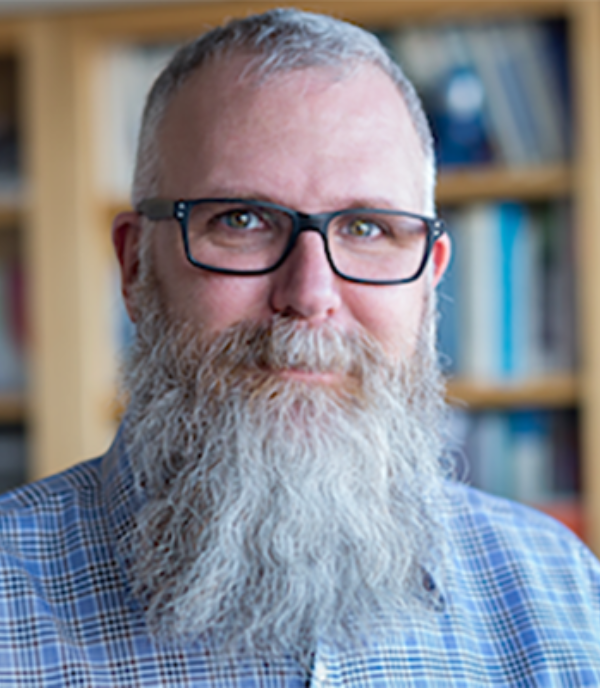
Professor, Computer Science
College of Engineering
Bio: Michael E. Papka is a professor of computer science and a member of the Electronic Visualization and SPEAR Laboratories at UIC. Papka’s teaching and research interests include high-performance computing, large-scale data analysis and visualization. He holds a joint appointment with Argonne National Laboratory, where he is a deputy associate laboratory director, the Argonne Leadership Computing Facility director and a senior scientist. Before joining UIC, he spent 10 years at Northern Illinois University as the Presidential Research, Scholarship and Artistry Professor of Computer Science. Papka received a bachelor’s degree in physics from Northern Illinois University, a master’s degree in electrical engineering and computer science from UIC and master’s and doctorate degrees in computer science from the University of Chicago.
Presentation Title: 1,000,000,000,000,000,000: Possibility of a Quintillion Calculations
Abstract: Achieving a computing speed of 1,000,000,000,000,000,000 calculations per second marks a significant breakthrough in computational power. This achievement has far-reaching implications for the global research community. It accelerates research across multiple disciplines and inspires a new generation of scholars and innovators. The impact is particularly notable in academic environments, exemplified by institutions like UIC, where such advanced computational resources are catalyzing more ambitious scientific inquiries and fostering innovative thinking. This development promises to reshape the landscape of research and discovery, encouraging bolder and broader explorations in various fields.
Lisa Powell, PhD
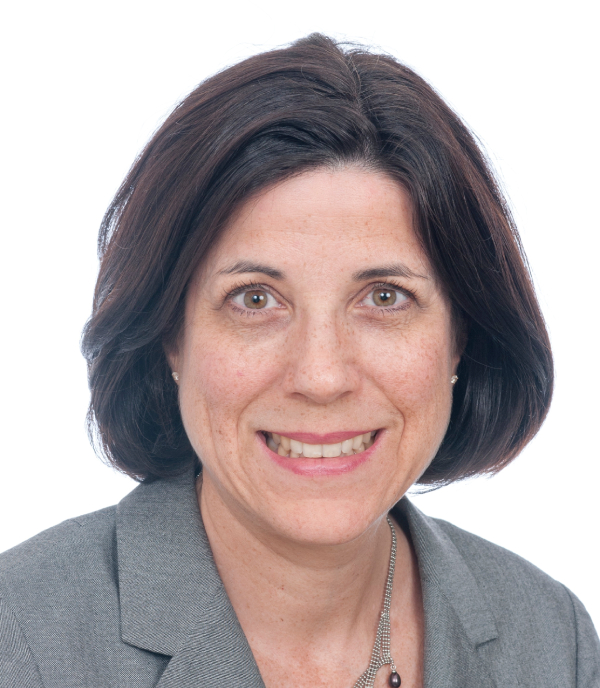
Distinguished Professor, Division of Health Policy
Director of the Policy, Practice and Prevention Research Center
School of Public Health
University of Illinois Cancer Center member in the Cancer Prevention and Control Research Program
Bio: Lisa M. Powell is a distinguished professor and director in the division of health policy and director of the Policy, Practice, and Prevention Research Center in the School of Public Health at the University of Illinois Chicago. Powell’s research assesses the importance of economic and contextual factors on food consumption, physical activity and obesity outcomes and related disparities. Her research has been funded by Bloomberg Philanthropies, the Laura and John Arnold Foundation, the Robert Wood Johnson Foundation, Centers for Disease Control and Prevention, National Institutes of Health and and U.S. Department of Agriculture. She serves on national and international expert advisory committees.
Presentation Title: Fiscal Policies for Health
Abstract: Health taxes are used as a fiscal policy instrument to reduce individuals’ harmful consumption of products such as tobacco, alcohol and sugar-sweetened beverages with the ultimate goal of reducing adverse health and other outcomes linked to the consumption of these products. The economic framework for health taxes has multiple goals: to reduce demand for the taxed products in order to reduce consumption-related externalities (for example, productivity costs and additional publicly funded health care costs) and internalities (such as inconsistent time preferences related to individual harm), and to generate revenue that can be used to fund complementary health-promotion efforts. The key mechanism through which this occurs is that taxes generally result in higher prices for consumers; this is known as tax pass-through.
Evidence from both demand models and tax evaluations shows that higher prices and taxes on products such as tobacco, alcohol and sugar-sweetened beverages reduce the consumption of these products. However, to fully understand the underpinnings of the net impact on consumption and ultimately health outcomes, it is also important to understand the extent to which taxes may induce substitution among types of the taxed products (such as switching to a cheaper brand) and to products taxed at relatively low rates or to non-taxed products (some of which may also be harmful to health), plus the extent to which consumers may take explicit steps to avoid taxes, such as by cross-border shopping. That is, substitution and tax avoidance behaviors influence consumption of taxed and untaxed products and may, to some extent, offset improvements in health and other outcomes. Indeed, studies have found that higher health taxes are associated with some degree of cross-border shopping.
The implementation of health taxes can face a number of challenges. For example, a concern frequently raised by industry when such taxes are proposed is that they will lead to job losses. However, it is important to keep in mind that when consumers reduce their purchases of the taxed products, they reallocate their spending to other goods and services and governments spend the revenue generated by the tax. Moreover, non-industry-funded empirical evidence has generally found no impact on employment with such taxes. With respect to impacts on health outcomes, evidence shows that higher cigarette prices and taxes are associated with lower levels of cancer and respiratory disease, and higher prices and taxes on alcoholic beverages are associated with reduced health risks (such as liver cirrhosis) and other harms (such as accidents and violence). However, there is limited evidence linking taxes on sugar-sweetened beverages and other foods to health outcomes, as these taxes are relatively new. Rigorous empirical evidence related to both intended and unintended consequences of health taxes is critical for policymakers in order for them to design evidence-based efficient fiscal policies to improve population health.
Christina Pugh, PhD, MFA
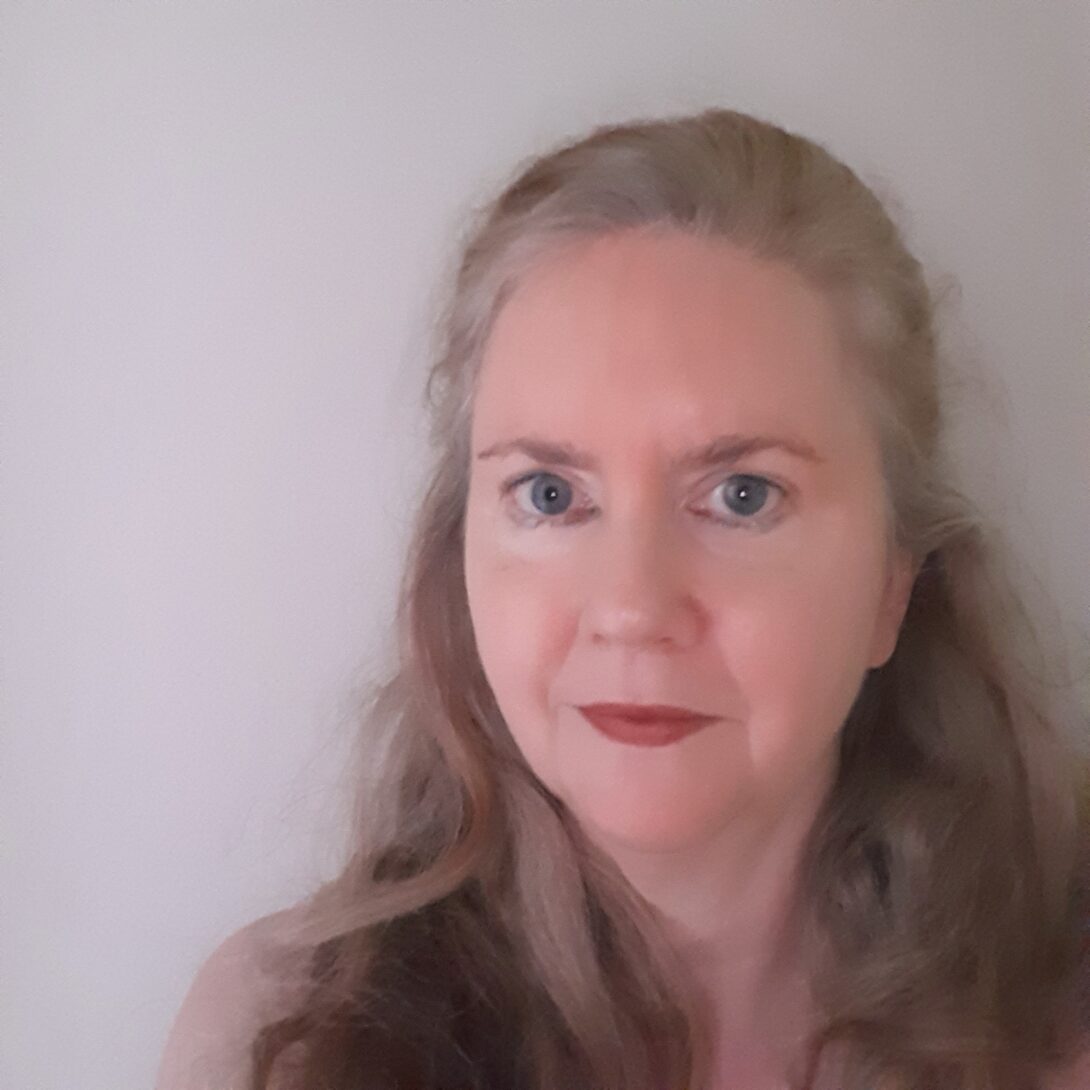
Professor of English, Program for Writers
College of Liberal Arts and Sciences
Bio: Christina Pugh’s new book of essays, “Ghosts and the Overplus: Reading Poetry in the Twenty-First Century,” was recently released by University of Michigan Press. She has published five books of poems including “Stardust Media” (University of Massachusetts Press, 2020), winner of the Juniper Prize for Poetry; and “Perception” (Four Way Books, 2017), named a top poetry book of 2017 by Chicago Review of Books. Her poems have appeared in The Atlantic, Poetry, Kenyon Review, Yale Review and many other publications. Her essays have appeared in Poetry, American Poetry Review, Twentieth Century Literature and other venues. Her sixth book of poetry, “The Right Hand,” is forthcoming in 2024 from Tupelo Press. Pugh has received a Guggenheim fellowship in poetry, as well as awards and fellowships from the Poetry Society of America, Poetry magazine, the Illinois Arts Council, The Bogliasco Foundation (Italy) and the Ucross Foundation. A recent Visiting Artist at the American Academy in Rome, she is a professor in UIC’s Program for Writers. She was recently named UIC’s Distinguished Scholar of the Year in Humanities, Arts, Design and Architecture.
Presentation Title: A Reading from “Ghosts and the Overplus”
Abstract: Pugh will read from the title essay in her recently published book of essays on poetry, “Ghosts and the Overplus: Reading Poetry in the Twenty-First Century” (University of Michigan Press, 2024).
Thomas Searles, PhD
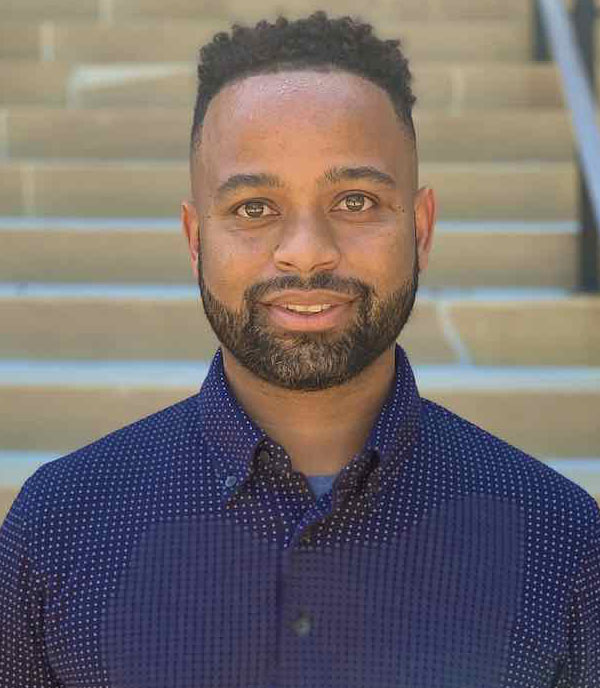
Associate Professor, Electrical and Computer Engineering
College of Engineering
Bio: Thomas A. Searles is a quantum engineer and experimental condensed-matter physicist from Albany, Georgia. He graduated from Morehouse College with a bachelor’s degree in mathematics and physics and Rice University with a doctorate degree in applied physics. In 2021, Searles joined the University of Illinois Chicago faculty as an associate professor, under the University of Illinois System’s Distinguished Faculty Recruitment Program. Before coming to UIC, he was a Martin Luther King Visiting Professor at MIT and a co-founding director of the IBM-HBCU Quantum Center at Howard University. Searles currently leads a multiyear, multimillion-dollar consortium for quantum engineering education sponsored by the U.S. Department of Energy. In recognition of his research in light-matter interactions and his capability to mentor students in physics and engineering, he received the inaugural AIP-NSBP Joseph A. Johnson Award for Excellence and an National Science Foundation Faculty Early Career Development Award.
Presentation Title: Quantum Engineering at UIC
Abstract: Quantum information technology is emerging and expected to disrupt current critical communications, computing and sensing infrastructure. All near-term applications of quantum information are recognized globally as challenging in both scientific and technological senses. Key limiting factors of quantum advantage over traditional technologies are fault-tolerance, noise reduction and error correction. As an emerging field, quantum engineering aims to apply traditional engineering principles to quantum phenomena, systems and devices. In this talk, we look at current research at UIC in quantum computing and optics/communications. Realizing advanced quantum technologies requires a skilled, diverse workforce to bring ideas central to quantum information to real-world applications outside the laboratory. We will detail present work at UIC to update an engineering physics curricula accredited by the Accreditation Board for Engineering and Technology and encourage students to gain experience and knowledge in quantum engineering.
Amita Shetty
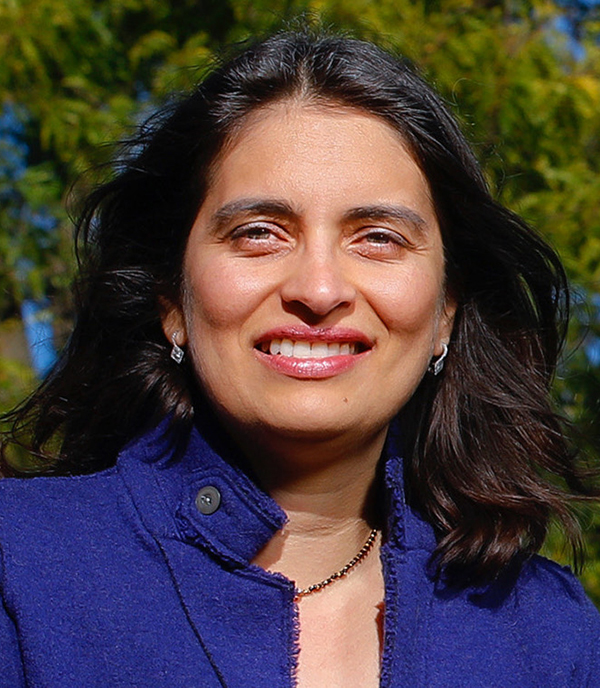
Director, Break Through Tech Chicago
Bio: Amita Shetty has more than 25 years of experience in corporations and startups. Before joining Break Through Tech Chicago, she was senior vice president of business development at GATX Corp., where she pursued investments in support of the company’s growth and diversification and led the North American strategy, marketing and commercial technology functions. Earlier in her career, she worked for General Electric and held positions in GE Capital, GE Corporate and GE Transportation divisions.
Shetty is an advocate for socioeconomic and gender equity, advocating for leadership roles for women in the workplace and advancing economic outcomes for women globally. She is active in Social Venture Partners Chicago, an organization of individuals pooling their time and expertise to scale the social impact of Chicago’s nonprofits. She holds a bachelor’s degree in civil and environmental engineering from Lafayette College and an MBA from the Kellogg School of Management at Northwestern University.
Presentation Title: Break Through Tech Chicago More Than Doubles the Number of Women, Nonbinary Students in Computing Disciplines in Four Years at UIC
Abstract: Despite a growing embrace of the value of gender diversity in the workplace and rapid technology job growth, the U.S. technology sector remains dominated by men. Part of that imbalance owes to the supply of qualified women and nonbinary job candidates — those who have the degrees in computer or data science required to compete for technology roles. For example, while the majority of all U.S. bachelor’s degree graduates are women — 58% — only 21% of those who complete computer science degrees are women.
The number of UIC female and nonbinary students enrolled in four target technology majors (computer science, computer science and design, computer science and linguistics and data science) and a computer science minor has doubled since the year before Break Through Tech Chicago’s inception to almost 600 students as of fall 2023. Women and nonbinary students make up a greater proportion of the population in those majors, too — 26% as of fall 2023, up from 19% in 2019. These results predominantly stem from focusing on these measures:
- Break Through Tech Chicago removes barriers to academic experimentation by offering a dedicated section of UIC’s introductory computer science course, Computer Science 111, that assumes no prior knowledge and that rewards risk-taking and diverse ways of thinking. This course, offered each summer, provides students with college credit. Break Through Tech Chicago programming is tied directly to UIC coursework and is designed expressly for the needs of UIC’s demographic pursuing majors such as biology, finance and psychology.
- Experience has shown that simply holding a degree is not enough to “crack the code” of technology employment for students emerging from a bachelor’s degree program, especially for those from underrepresented backgrounds. To be selected for rewarding technology roles, graduates must enter the job market with a substantial resume of internships. Break Through Tech Chicago encourages students who complete Computer Science 111 to build their resumes by applying for a wage-earning micro-internship called a Sprinternship at one of 20-plus Chicago-area companies. So far, 330 students have completed a Break Through Tech Chicago Sprinternship. More than two-thirds of Sprinternship companies have offered a full-length internship or a full-time job to their Sprinterns in the past two program cycles. The program provides a gateway work experience that moves women and nonbinary students out of the “pre-experience” category and allows them to access broader technology job opportunities.
In addition, several changes were adopted at the college and department levels. For example, pre-requisites for a computer science minor were modified and new interdisciplinary majors such as computer science and design were launched, as were communication campaigns designed to motivate women and nonbinary students to accept their UIC computer science admissions offers for the fall semester.
Charu Thakral, PhD

Interim Vice Chancellor for Diversity, Equity and Engagement
Office of the Vice Chancellor for Diversity, Equity and Engagement
Bio: Charu Thakral, interim vice chancellor for the Office of Diversity, Equity and Engagement, previously was the executive associate vice chancellor for the office, providing oversight for campus-wide diversity education. She launched the UIC Dialogue Initiative, for which she developed credit-bearing courses and workshops designed to analyze and understand social conflict, intergroup relations and issues of diversity and social justice. Across the health science colleges, she worked with faculty to apply principles of intergroup relations and dialogue pedagogy to interprofessional education and collaborative practice programs now offered at all six UIC campuses.
Thakral also co-led the development and implementation of the Inclusive Education Scholars Certificate Program with the Center for the Advancement of Teaching Excellence. This effort supports instructors in building capacity to implement equitable teaching practices. She currently serves in leadership roles on several National Science Foundation and Howard Hughes Medical Institute grant awards, where she guides efforts for institutional change and implements professional development programs for faculty focused on inclusive teaching.
Thakral’s contributions have been recognized through Loyola University’s School of Education Distinguished Alumni Award, UIC’s Award of Merit and UIC Chancellor’s Academic Professional Excellence Award.
Presentation Title: Inclusive Education Scholars Certificate Program
Abstract: The UIC’s Office of Diversity, Equity and Engagement and Center for the Advancement of Teaching Excellence launched a new program to help instructors support student success and well-being by building inclusive classrooms. This professional development program, the Inclusive Education Scholars Certificate Program, was designed to support instructors as they learn about the lived experiences of and contextual barriers faced by minoritized and underserved students.
Educators have long relied on innovative pedagogical practices such as active learning to teach courses that improve overall student performance but fail to eliminate the equity gaps that persist across demographic groups. The social and emotional context of learning and classroom practices matter. Given that most faculty are experts in academic disciplines but not necessarily in traditional or inclusive pedagogies, they are often not adequately prepared to teach classes of diverse students in this context. Moreover, faculty-led efforts to change their teaching practices to improve student outcomes can be undermined by deficit-based attitudes about students or unconscious biases toward students with different social identities.
The Inclusive Education Scholars Certificate Program incorporates components of previously successful inclusive pedagogy interventions. It’s designed to help faculty become more self-aware of their own social identities and implicit biases. Elements of this program engage faculty in facilitated discussions to help them deploy this information in their classrooms and enable them to adopt teaching practices that transform their classrooms in ways that value diversity, foster inclusion and close equity gaps.
Three components are required to obtain the Inclusive Education Scholars Certificate Program certificate: four asynchronous, self-paced eLearning modules; five facilitated faculty learning communities; and three inclusive teaching workshops. The eLearning modules focus on themes relevant to creating inclusive classrooms: growth mindset, belonging and exclusion in higher education, influence of social identities in the classroom and the impacts of bias in the classroom. A trained facilitator supports faculty learning communities discussions in which instructors explore how to apply principles introduced in eLearning modules to their own classroom, disciplinary or departmental context. The face-to-face time is intended to motivate deeper learning, attitudinal change and behavioral change among instructors by making the material from the eLearning modules relevant to their teaching context.
While the broader goal of this project is to create and sustain an institutional culture that champions excellence in inclusive education, the underlying purpose is to help faculty understand the interconnectedness of teaching excellence and diversity in the classroom. By fostering inclusive teaching, we aim to support faculty in their efforts to prioritize diversity, equity and engagement as much as disciplinary fidelity in their teaching. The ultimate goal of the Inclusive Education Scholars Certificate Program is to challenge perceptions and concerns related to compromising rigor and standards for academic achievement.
Debra Tonetti, PhD

Professor of Pharmacology, Pharmaceutical Sciences
College of Pharmacy
University of Illinois Cancer Center member in the Translational Oncology Research Program
Bio: Debra A. Tonetti is a tenured professor in the department of pharmaceutical sciences in the College of Pharmacy. She earned a doctorate degree in biochemistry from Loyola University Chicago and completed postdoctoral studies at Argonne National Laboratory as an Enrico Fermi Postdoctoral Fellow. Tonetti then moved to Northwestern University and trained with V. Craig Jordan (considered the father of the breast-cancer treatment tamoxifen), where she investigated mechanisms of endocrine-resistant breast cancer. Tonetti joined the UIC faculty in the department of biopharmaceutical sciences in 2001 as an assistant professor and rose through the ranks to full professor. She served as interim head of biopharmaceutical sciences from 2017 t0 2019 and pharmaceutical sciences from 2021 to 2022. Her laboratory is focused on the etiology and treatment of breast cancer. In collaboration with Greg Thatcher, her laboratory developed TTC-352, a novel class of drugs called selective human estrogen receptor partial agonists. She is co-founder and CEO of the start-up company TTC Oncology. She currently leads the Breast Cancer Working Group at University of Illinois Cancer Center.
Presentation Title: Translational Opportunities in Breast Cancer: From Bench to Bedside
Abstract: The overwhelming majority of all breast cancers are estrogen-receptor-positive and respond to endocrine treatment. Despite the efficacy of endocrine drugs, estrogen-receptor-positive tumors develop resistance, leading to metastatic disease with disease recurrence within the first five years, and often 10 to 20 years following the initial diagnosis. At this point, cytotoxic chemotherapy is typically the only treatment option. My laboratory is focused on understanding the mechanisms of endocrine resistance and uncovering potential vulnerabilities to devise novel therapeutic approaches.
Counterintuitively, high-dose estrogen was used to treat breast cancer before the introduction of tamoxifen. Whereas estrogen had a similar or better response rate, tamoxifen became the gold-standard endocrine treatment due a more favorable side-effect profile. In a series of studies, my laboratory demonstrated that protein kinase C alpha is associated with endocrine resistance; its expression predicted tumor regression in response to estradiol in breast cancer preclinical models.
One implication is that protein kinase C alpha can be used as a predictive biomarker to drive therapeutic choice. Application of this knowledge was used in collaboration with my colleague Greg Thatcher, who developed a novel safer class of drugs called selective human estrogen receptor partial agonists (ShERPAs). Unlike estrogen and tamoxifen, this class of drugs does not stimulate uterine proliferation and has great potential for treatment of a subset of breast cancer patients. Based on my results with the ShERPA TTC-352 in preclinical xenograft models, the Tonetti/Thatcher team formed a start-up called TTC Oncology. Angel investment allowed us to complete investigational new drug-enabling studies and initiate a phase I clinical trial in patients with metastatic breast cancer. Trial results indicated no dose-limiting toxicity, and anti-tumor activity was observed in 30% of patients with metastatic breast cancer. Protein kinase C alpha is being investigated in a planned phase 2 clinical trial as a potential predictive biomarker for TTC-352 response. Translation of TTC-352 from the bench to the bedside holds great promise for patients with metastatic breast cancer.
Terry Vanden Hoek, MD, FACEP
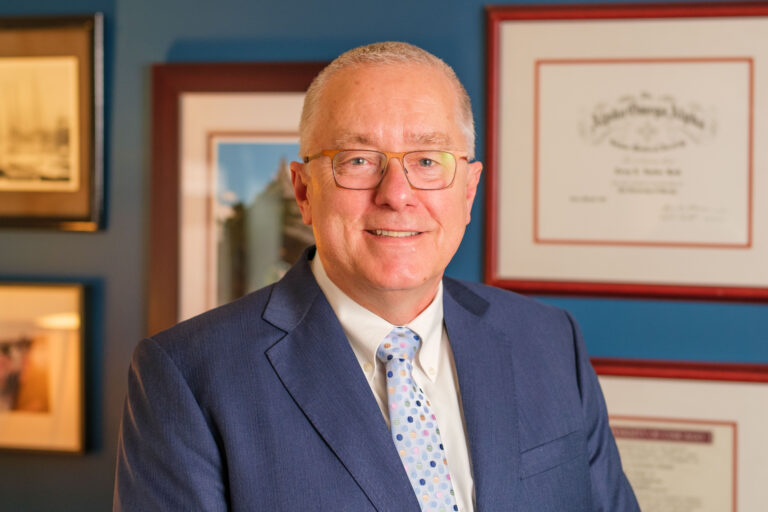
Head of Emergency Medicine
Professor, Emergency Medicine, Physiology, Biophysics, Pharmacology and Regenerative Medicine
College of Medicine
Bio: Terry Vanden Hoek has been a physician-scientist in emergency medicine for over 25 years and is a fellow of the American College of Emergency Physicians. In his work over the past 12 years with emergency-medical service systems and hospitals throughout Illinois, he has used cardiac-arrest data to target at-risk communities for directed educational interventions. This Illinois Heart Rescue program has improved rates of bystanders administering CPR and rates of survival more than three-fold in Illinois. The program also has become a model globally for educational programs, particularly in India. In other laboratory work, Vanden Hoek has used genomic data to examine cooling protection against cardiac arrest injury to develop first-in-class biologic agents that have the potential to dramatically improve survival. His translational science for improving cardiac arrest care, using both community implementation and laboratory insights, has been recognized with many awards, including his recent election into the National Academy of Medicine.
Presentation Title: Transforming Cardiac Arrest Care
Abstract: Sudden cardiac arrest remains one of the most challenging emergencies occurring outside the hospital. There are about 350,000 adult cases annually in the United States, and overall survival rates are 10%. Moreover, some level of cognitive impairment occurs in up to half of survivors. Unlike for other leading causes of death, there are no drugs available that improve long-term survival. There are, however, interventions that can improve outcomes significantly. They include bystanders administering chest compressions (CPR) early, early defibrillation and — after arrival to the hospital — active cooling to achieve a protective targeted temperature, as well as early access to a cardiac catheterization facility.
Illinois Heart Rescue began in 2012 as a multi-institutional statewide effort to change what had been dismal survival rates in Illinois for cardiac arrest occurring outside a hospital. The focus of Illinois Heart Rescue reflected the health-equity mission of UIC/UI Health by measurably strengthening sequential links of care in the chain of sudden cardiac arrest survival. To strengthen this care in Illinois, our aims included:
- Implementing a data infrastructure that utilized the Cardiac Arrest Registry to Enhance Survival. A data portal allowed entry of data related to community, EMS and hospital treatment of cardiac arrests.
- Improving rates of bystanders administering CPR and defibrillation. Hotspot communities were identified as those with a high incidence of sudden cardiac arrest and low rates of bystanders administering CPR. This approach helped focus resources on education for bystanders on CPR/automatic external defibrillators. Additional complementary work using an audit/feedback approach with 911 dispatchers was used to improve early recognition of sudden cardiac arrest on calls and give direction to callers to begin CPR.
- Improving survival to hospital admission through training in emergency medical service systems. Trainings included resuscitation academies that highlighted best practices for EMS response. Audit/feedback approaches incorporated measurements of chest compression quality and defibrillation timeliness for process improvement.
- Improving neurologically intact survival from hospitals after sudden cardiac arrest. Hospitals that could provide complete post-cardiac-arrest care, including cardiac catheterization, were designated as receiving hospitals for sudden cardiac arrest patients. Data on rates of survival to hospital discharge were shared with individual hospitals and benchmarked to other de-identified hospitals in the state and throughout the United States. Best practices by hospitals were identified and shared among participating hospitals.
This talk highlights the outcomes of these aims and the future direction of Illinois Heart Rescue.
Andrea Vaughan, PhD
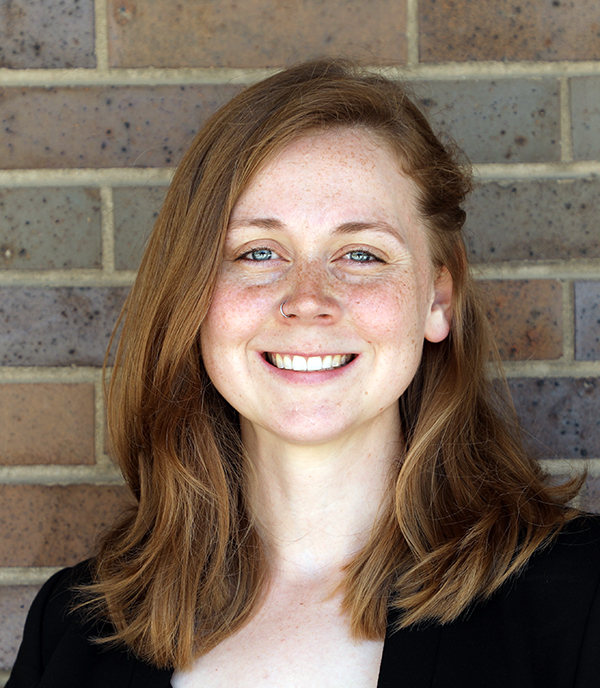
Visiting Research Assistant Professor
College of Education
Bio: Andrea Vaughan is a researcher, organizational leader and educator devoted to understanding and deepening learners’ experiences both in and outside of school. She is a visiting research assistant professor in the College of Education at the University of Illinois Chicago. She also serves as the interim director of the Center for Literacy, the community engagement arm of UIC’s College of Education, where she leads research, programming, partnerships and operations. Vaughan deeply values the opportunity to put research into practice to make a difference in the lives of Chicago families and to learn with students, community partners and a dedicated team of educators every day.
Presentation Title: Transforming Chicago: Inspiring Hope, Sharing Knowledge and Engaging Families
Abstract: For more than 30 years, the Center for Literacy has served families on Chicago’s South and West sides through a unique partnership between the city and its only major public research university, UIC. Through adult and family education programming (including digital literacy, financial literacy, employment readiness and parenting/fatherhood initiatives); professional development for early-childhood educators and family-service workers; and our Resource Center for Autism and Developmental Delays, the Center for Literacy serves over 5,000 families each year. The center is the longstanding community-engagement arm of the College of Education, and our work is essential to the College’s mission to advance knowledge, inspire learning and engage communities.